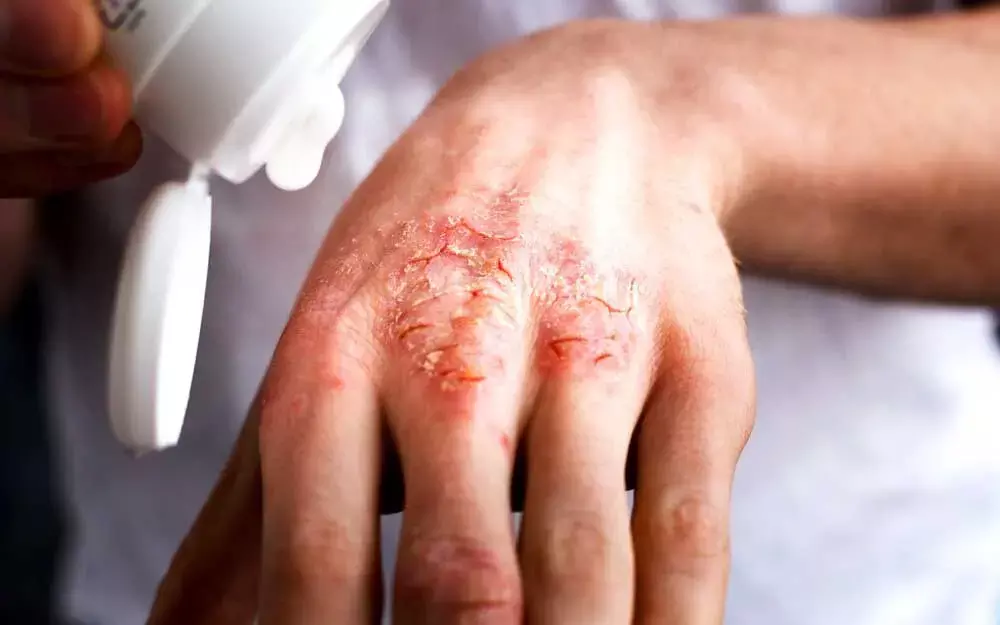- Home
- Medical news & Guidelines
- Anesthesiology
- Cardiology and CTVS
- Critical Care
- Dentistry
- Dermatology
- Diabetes and Endocrinology
- ENT
- Gastroenterology
- Medicine
- Nephrology
- Neurology
- Obstretics-Gynaecology
- Oncology
- Ophthalmology
- Orthopaedics
- Pediatrics-Neonatology
- Psychiatry
- Pulmonology
- Radiology
- Surgery
- Urology
- Laboratory Medicine
- Diet
- Nursing
- Paramedical
- Physiotherapy
- Health news
- Fact Check
- Bone Health Fact Check
- Brain Health Fact Check
- Cancer Related Fact Check
- Child Care Fact Check
- Dental and oral health fact check
- Diabetes and metabolic health fact check
- Diet and Nutrition Fact Check
- Eye and ENT Care Fact Check
- Fitness fact check
- Gut health fact check
- Heart health fact check
- Kidney health fact check
- Medical education fact check
- Men's health fact check
- Respiratory fact check
- Skin and hair care fact check
- Vaccine and Immunization fact check
- Women's health fact check
- AYUSH
- State News
- Andaman and Nicobar Islands
- Andhra Pradesh
- Arunachal Pradesh
- Assam
- Bihar
- Chandigarh
- Chattisgarh
- Dadra and Nagar Haveli
- Daman and Diu
- Delhi
- Goa
- Gujarat
- Haryana
- Himachal Pradesh
- Jammu & Kashmir
- Jharkhand
- Karnataka
- Kerala
- Ladakh
- Lakshadweep
- Madhya Pradesh
- Maharashtra
- Manipur
- Meghalaya
- Mizoram
- Nagaland
- Odisha
- Puducherry
- Punjab
- Rajasthan
- Sikkim
- Tamil Nadu
- Telangana
- Tripura
- Uttar Pradesh
- Uttrakhand
- West Bengal
- Medical Education
- Industry
Tralokinumab monotherapy effective in moderate-to-severe atopic dermatitis: Study

Recent evidence shows that Tralokinumab monotherapy was superior to placebo at 16 weeks of treatment and was well tolerated up to 52 weeks of treatment for patients with moderate‐to‐severe atopic dermatitis.
This study is published in the British Journal of Dermatology.
Tralokinumab, a fully human monoclonal antibody, specifically neutralizes interleukin‐13, a key cytokine driving peripheral inflammation in atopic dermatitis (AD). In phase II studies, tralokinumab combined with topical corticosteroids provided early and sustained improvements in AD signs and symptoms.
Hence, A. Wollenberg and colleagues from the Department of Dermatology and Allergy, Ludwig Maximilian University of Munich, Munich, Germany conducted the study to evaluate the efficacy and safety of tralokinumab monotherapy in adults with moderate‐to‐severe AD who had an inadequate response to topical treatments.
In two 52‐week, randomized, double‐blind, placebo‐controlled, phase III trials, ECZTRA 1 and ECZTRA 2, adults with moderate‐to‐severe AD was randomized (3: 1) to subcutaneous tralokinumab 300 mg every 2 weeks (Q2W) or placebo. Primary endpoints were Investigator's Global Assessment (IGA) score of 0 or 1 at week 16 and ≥ 75% improvement in Eczema Area and Severity Index (EASI 75) at week 16. Patients achieving an IGA score of 0 or 1 and/or EASI 75 with tralokinumab at week 16 were rerandomized to tralokinumab Q2W or every 4 weeks or placebo, for 36 weeks.
The results showed-
a. At week 16, more patients who received tralokinumab vs. placebo achieved an IGA score of 0 or 1: 15·8% vs. 7·1% in ECZTRA 1 [difference 8·6%, 95% confidence interval (CI) 4·1–13·1; P = 0·002] and 22·2% vs. 10·9% in ECZTRA 2 (11·1%, 95% CI 5·8–16·4; P < 0·001) and EASI 75: 25·0% vs. 12·7% (12·1%, 95% CI 6·5–17·7; P < 0·001) and 33·2% vs. 11·4% (21·6%, 95% CI 15·8–27·3; P < 0·001).
b. Early improvements in pruritus, sleep interference, Dermatology Life Quality Index, SCORing Atopic Dermatitis and Patient‐Oriented Eczema Measure was observed from the first postbaseline measurements.
c. The majority of week 16 tralokinumab responders maintained response at week 52 with continued tralokinumab treatment without any rescue medication (including topical corticosteroids).
d. Adverse events were reported in 76·4% and 61·5% of patients receiving tralokinumab in ECZTRA 1 and ECZTRA 2, respectively, and in 77·0% and 66·0% of patients receiving placebo in ECZTRA 1 and ECZTRA 2, respectively, in the 16‐week initial period.
Hence, Tralokinumab monotherapy was superior to placebo at 16 weeks of treatment and was well tolerated up to 52 weeks of treatment, the authors concluded.
Dr. Nandita Mohan is a practicing pediatric dentist with more than 5 years of clinical work experience. Along with this, she is equally interested in keeping herself up to date about the latest developments in the field of medicine and dentistry which is the driving force for her to be in association with Medical Dialogues. She also has her name attached with many publications; both national and international. She has pursued her BDS from Rajiv Gandhi University of Health Sciences, Bangalore and later went to enter her dream specialty (MDS) in the Department of Pedodontics and Preventive Dentistry from Pt. B.D. Sharma University of Health Sciences. Through all the years of experience, her core interest in learning something new has never stopped. She can be contacted at editorial@medicaldialogues.in. Contact no. 011-43720751
Dr Kamal Kant Kohli-MBBS, DTCD- a chest specialist with more than 30 years of practice and a flair for writing clinical articles, Dr Kamal Kant Kohli joined Medical Dialogues as a Chief Editor of Medical News. Besides writing articles, as an editor, he proofreads and verifies all the medical content published on Medical Dialogues including those coming from journals, studies,medical conferences,guidelines etc. Email: drkohli@medicaldialogues.in. Contact no. 011-43720751


